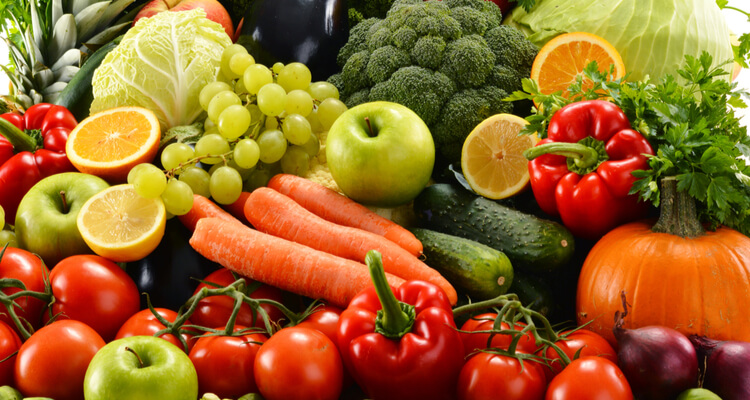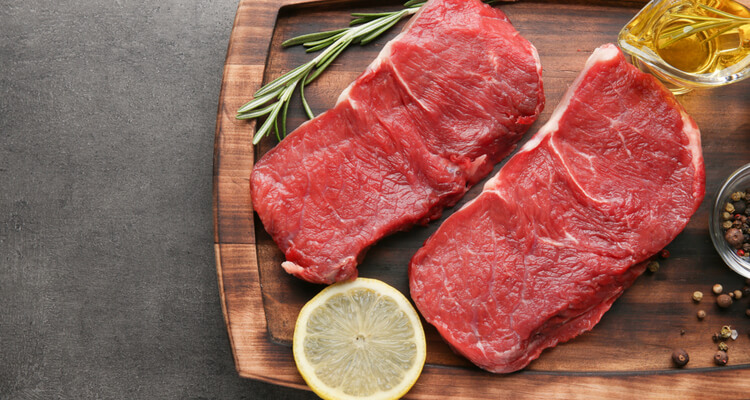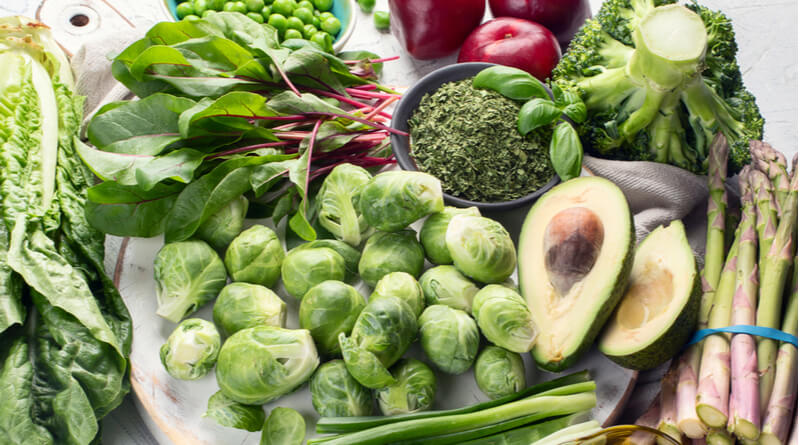Both keto and vegetarian diets have become popular over the past decade. There is a good reason for their rise in popularity. They have lots of health benefits to offer people who commit to them. The health benefits range from improving a person’s heart health to helping a person effectively lose weight. They are so effective at this, that it seems natural to combine them into one diet.

Turning the keto diet into a vegetarian diet can be somewhat difficult because keto requires people to eat a diet that is high in fat; this can be difficult to achieve when you primarily eat vegetables. It is difficult, but it can be done, all it takes is a little bit of understanding of what makes these diets work. Read on to learn how to fashion an effective vegetarian keto diet.
Also Read: Ketogenic Diet: Are you following it right?
What is a Vegetarian Keto Diet?
Vegetarian keto diet is a diet plan that combines the traits of both the keto diet and vegetarianism. A vegetarian diet is simply a diet that excludes all meat food sources. The ketogenic diet on the other hand, is one that is high in fat and low in carbs. Its designed to trick your body into entering a state of ketosis, where it burns fat for fuel instead of calories.
Most vegetarians already practice some form of vegetarian keto, since they have to include non-meat sources of protein in their diet already. The act of effectively combining them is normally just eating the right portions of the high fat vegetarian foods.
Health Benefits
There aren’t many studies that explicitly look at the health benefits of a vegetarian keto diet. Here are a few health benefits of following a vegetarian keto diet plan –
Promotes weight loss
Both diets are great for encouraging effective weight loss. The keto diet in particular can help people start losing weight in a matter of days. A vegetarian diet can encourage weight loss, but some aren’t as effective as others. The least effective vegetarian diets tend to be high in carbs which can cause practitioners to put on weight or maintain their weight. Combining vegetarianism with keto diet eliminates this issue because the keto diet discourages eating lots of carbs.
Also Read: The Real Facts and Myths About Keto Diet
Protects against chronic diseases
Both the ketogenic diet and vegetarianism have been linked to a reduced risk of developing certain chronic conditions, such as cancer, heart disease, and diabetes. The diets have also been proven to improve brain functionality and prevent the development of neural degenerative diseases, like Alzheimer’s disease.
Foods to Eat

- Non-starchy vegetables
Spinach, kale, mushrooms, bell peppers, zucchini, leafy green vegetables, etc. - Nuts
Cashews, almonds, pistachios, walnuts, macadamia nuts, Brazil nuts, etc. - Nut butters
Hazelnut butter, almond butter, peanut butter, pecan butter, etc. - Healthy fats
Olive oil, avocados, coconut oil, avocado oil, MCT oil, grapeseed oil, etc. - Protein
Tempeh, nutritional yeast, eggs, spirulina, tofu, natto, protein powder, etc. - Seeds
Hemp seeds, pumpkin seeds, chia seeds, flax seeds, sunflower seeds, etc. - Full-fat dairy products
Cheese, milk, yogurt, kefir, etc. - Herbs and seasonings
Turmeric, basil, oregano, paprika, pepper, Himalayan salt, rosemary, thyme, cayenne pepper, etc. - Low carb fruits
Limes, berries, lemons, etc.
Foods to Avoid

Eliminate these foods from your diet entirely:
- Meat
Veal, beef, goat, lamb, pork - Fish and shellfish
Salmon, sardines, lobster, mussels, tuna, anchovies, mackerel, etc. - Poultry
Turkey, chicken, goose, duck, pheasant, etc.
Foods that you should minimize or limit
- Sweeteners
Brown sugar, honey, agave nectar, maple syrup, white sugar, etc. - Starchy veggies
Yams, carrots, potatoes, sweet potatoes, beets, parsnips, etc. - Grains
Quinoa, bread, buckwheat, rice, pasta, barley, rye, millet, oats, pasta, etc. - Sugar sweetened beverages
Sweet tea, juice, soda, sports drinks, Gatorade, energy drinks, store bought fruit juices - Legumes
Peas, chickpeas, black beans, kidney beans, lentils, etc. - Condiments
Honey mustard sauce, ketchup, barbecue sauce, sweetened salad dressings (ranch, thousand island, etc.) marinades, etc. - Alcoholic beverages
Wine, beer, spirits, sweetened cocktails, liqueurs, etc. - Processed foods
Granola, cookies, breakfast cereals, fast food, crackers, cookies, chips, etc. - Fruits
bananas, apples, berries, apricots, melon, oranges, plums, peaches, grapes, raisins, etc.
There are a lot of reasons to take up the vegetarian keto diet; they improve your health and help you lose weight effectively. While they are effective you should be careful adhering to it as you can easily develop a nutritional deficiency if you are not careful. These diets tend to be low in protein, iron B complex vitamins, and calcium, so make sure to include foods that contain these nutrients when you begin the diet. In any case, before you start on any diet for weight loss, it is best to consult your health practitioner to understand what will work for your body and then adhere to the recommended diet!








